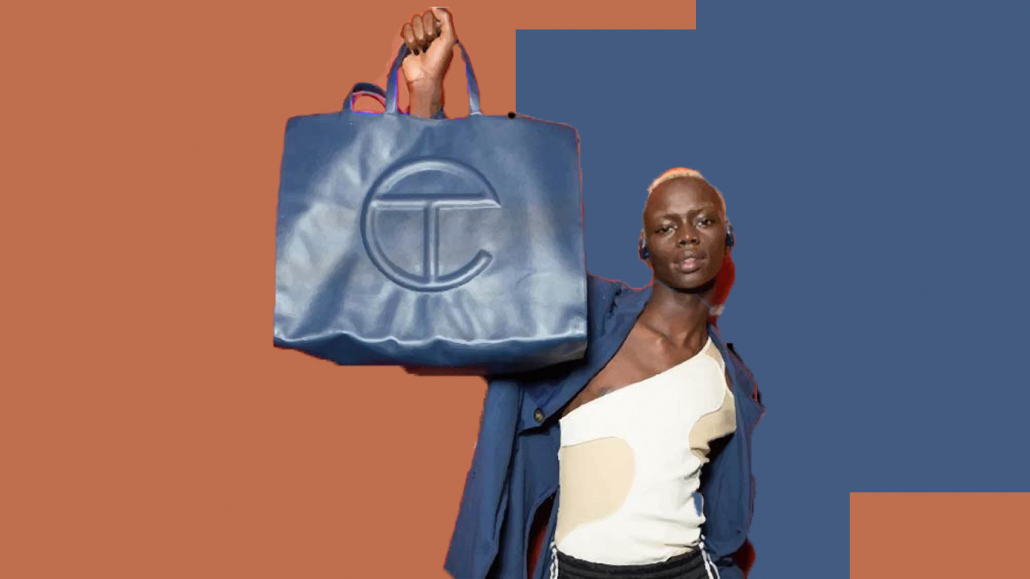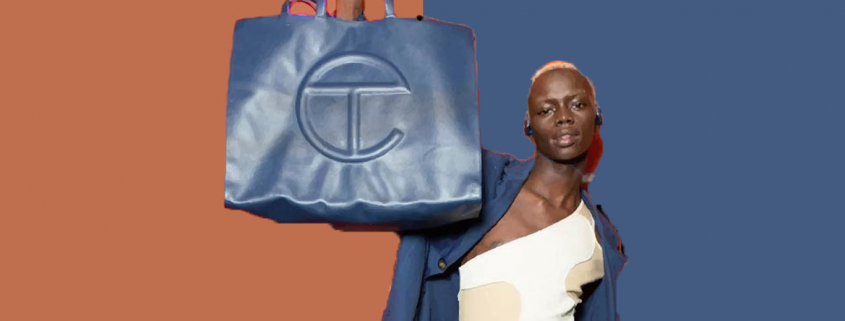Six Black-owned brands reinventing the fashion landscape

No matter the cultural arena, Black designers continue to define the fashion industry. Inspired by art, sports, immigrant experiences and much more, fashion is an art form that connects the Black diaspora. Because of the long-standing influence and impact Black creators have had within the industry, you should be supporting Black-owned fashion brands before and after Black History Month. Reflecting the amalgamation of affinities, ethnicities, ethos and interests Black designers have, these six fashion brands are the perfect way to close out Black History Month with style.
“Tia Adeola” by Tia Adeola
Tia Adeola has been worn by the likes of SZA, Kali Uchis, Flo Milli and many more. The 24-year-old launched her eponymous label while pursuing an undergraduate culture and media degree at The New School. With designs that almost look like they were pulled out of a high school AP European History textbook, it’s obvious she’s put the degree to use.
The brand, formerly known as SlashedbyTia, is known for its Renaissance-inspired designs and is largely informed by Adeola’s passion for art history. The Nigerian-born and United Kingdom-raised designer indulges in her interests while grappling with the marginalized Black people who appear in European art as slaves or jesters. Paying tribute to these people, Adeola decided to launch a company that explored Renaissance muses and society, while showcasing Black women in elements previously reserved for white women. Her vision gave life to a combination that puts the Sistine Chapel to shame and is now her signature: Black women in ruffles.
“Hardies Hardware” by Tyshawn Jones
Skate culture and fashion have become almost inseparable, even apart from streetwear. While most skaters dream of securing a sponsorship with one of the industry’s top brands (this is where I’m obligated to mention Supreme), Tyshawn Jones, 2018’s Thrasher Skater of the Year, decided to become the brand with Hardies Hardware.
Hardies began as a facetious concept amongst Jones’ friends from skate crew Illegal Civilization — a hardware store that also sells clothing — but launched as a collaboration with friend Na-kel Smith in 2014. The brand now provides a mix of tees, knit pullovers and — staying true to its identity as a skate company — cruiser decks. However, it’s Hardies’ classic NYC trucker hat that’s most worth buying. The tribute to Jones’ hometown reflects his efforts to maintain east coast representation in a sport that’s too often associated with the west coast.
“MATTE Brand” by Briana Wilson
“I like to show real women in the clothes so that real women will buy them,” said Briana Wilson.
Wilson, founder of “MATTE,” approaches her designs with a commitment to minimalism and realism. The 24-year-old designer launched the brand in 2014 with simple bodysuits modeled by non-agency models. Her most recent Fall/Winter “1992” collection offers strappy sets, mini-skirts and cropped crocodile jackets in taupe and chocolate nudes. Wilson hasn’t strayed from her roots, however. Her “MATTE FRAME” collection features body-hugging loungewear and sweaters. Wilson’s sleek and straightforward design ethos reminds us that style can be comfortable and that simple is sexy.
“Asata Maisé” by Asata Maisé
Whether it’s jeans, tops or cardigans, patchwork designs have inundated the fast fashion industry for months. Needless to say, the trend has grown tired. However, Asata Maisé’s patchworked shoulder bags are the perfect spin to revive the craze.
The corporate alumna of Diane von Furstenberg came across the formula for her eponymous label after looking for a sustainable way to refresh the classic ’90s silhouette. Her choice to repurpose vintage denim fabrics into shoulder bags isn’t only great for the environment, it’s resulted in colorful one-of-kind, hand-crafted pieces. With an Asata Maisé purchase, you’ll look fabulous while taking comfort in the fact that you’ve reduced waste. And more importantly, no one can jack your style!
“Telfar” by Telfar Clemens
Odds are anyone with an internet presence has heard of Telfar. The brand especially gained mainstream acclaim after last summer’s calls for social change prompted consumers to spend money with Black-owned brands. This movement, combined with increased bot usage on the site and unanticipated demand, resulted in scarcity. Suddenly countless social media posts pining over the classic shopping bag went viral. Most recently, Telfar has announced collaborations with Converse and Gap.
It’s hard to believe the viral brand is the same one Telfar Clemens — a Liberian American raised primarily in Queens, New York — launched in 2005 with a simple shopping bag. The bag was initially popularized amongst queer and Black youth in Brooklyn, but resellers have made it harder for the original audience to secure the product. Recognizing the sudden scarcity, Clemens launched a pre-order program in August, intending to curb any ideas of exclusivity surrounding the bag.
As Clemens takes a stand against resellers, he stays true to Telfar’s motto: “Not for you — for everyone.” Telfar’s efforts to keep the bag accessible have prompted the industry to envision an idea of luxury that doesn’t involve elitism or exclusion. As the proud owner of an olive-green Telfar medium shopping bag, I can assure you that (if you can snag one) the impeccably designed and extremely sturdy product is well worth the investment!
“Phlemuns” by James Flemons
Many have characterized Phlemuns, founded by James Flemons, as a fashion company for the future. It’s true the genderless label proved that fashion doesn’t have to adhere to the gender binary, but Flemons isn’t designing for the future. He’s building a timeless legacy by pulling from the past: “I treat the clothes as these timeless stamps that will last,” Flemons shares in an interview with SSENSE. “It’s like I’m leaving breadcrumbs of myself that will exist forever.”
Flemons creates these timeless pieces by analyzing the Black art and fashion of the last century. The designer especially admires gender-fluid elements of African American fashion of the ’70s, and his 2017 denim capsule sourced denim entirely from thrift stores. The company’s appeal isn’t its constant evolution, but Flemons’ ability to recognize which elements of the past will speak to today’s audiences.

